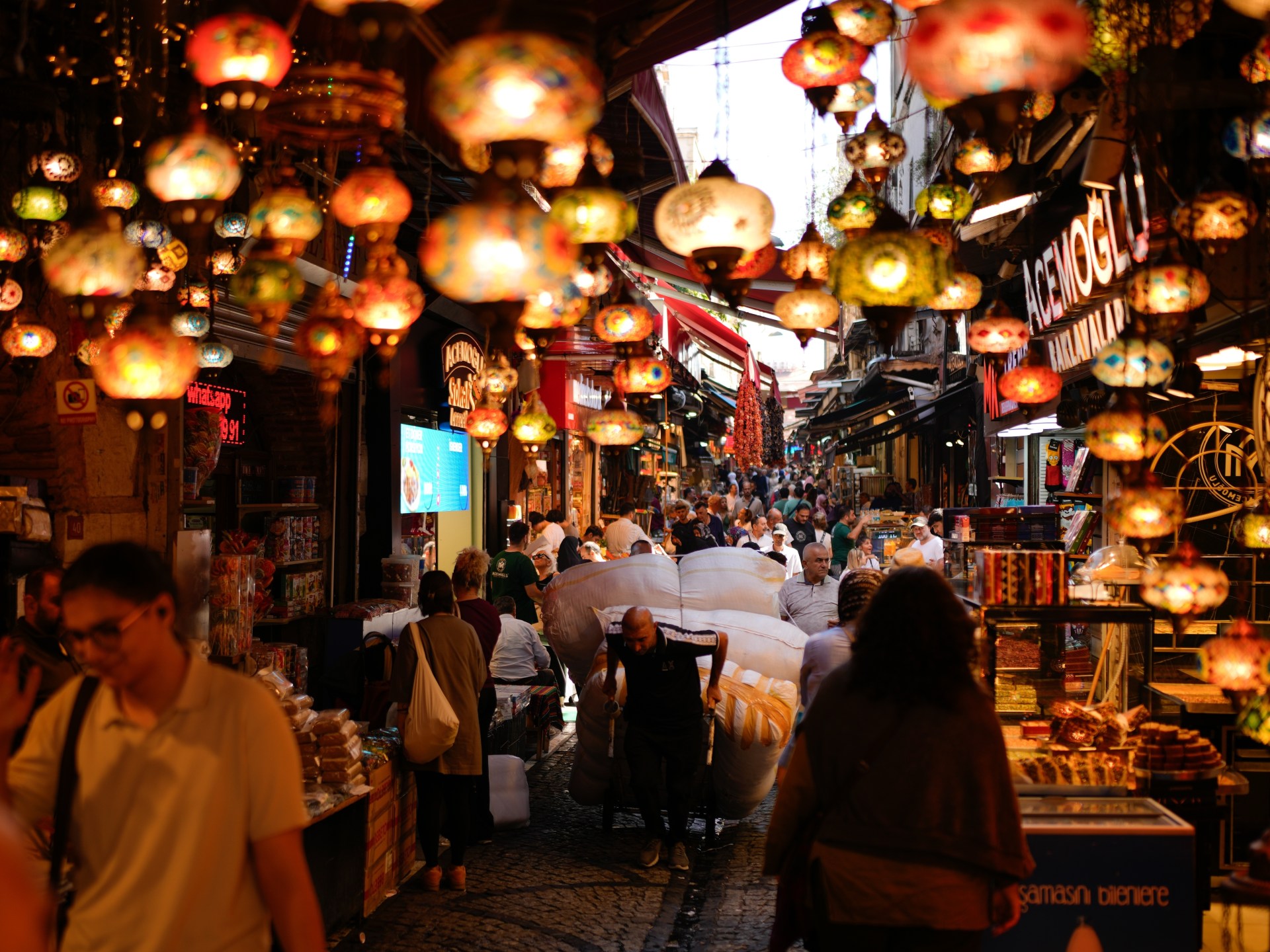Published On 24 Oct 2025
On the streets of Istanbul in Turkiye, porters hauling massive sacks wrapped in white plastic—on their backs or in handcarts—represent an essential yet often invisible thread in the city’s cultural tapestry.
This profession, called hamallık in Turkish, has survived from Ottoman times into the modern era.
The practice thrives particularly in Istanbul’s historic commercial centres—the Egyptian Bazaar, the Grand Bazaar, and the Eminonu district—where traditional hans (commercial buildings) house workshops producing jewellery, textiles, and various goods.
These porters remain vital because many centuries-old hans lack modern amenities like elevators and are nestled within narrow streets where vehicles cannot pass. In Eminonu, daytime traffic restrictions further heighten their importance.
Using a semer—a traditional wooden and leather harness—porters can transport between 200 and 300 kilogrammes (440–660 pounds) of merchandise up to a han’s fifth floor. These specialised harnesses often become family heirlooms, passed from father to son, highlighting the profession’s hereditary nature. (The occupation remains predominantly male, with female porters being exceptionally uncommon.)
The porters operate within organised divisions led by managers who ensure fair work distribution. Members earn daily wages based on their loads’ quantity and weight.
This demanding profession requires remarkable physical strength and stamina, limiting entry to those capable of meeting its rigorous demands. Porters take considerable pride in their work and carefully select new members.
Omer Okan, 60, has worked as a porter for 30 years, routinely carrying more than 500kg (1,100 pounds) on his back daily.
The occupation offers little security. Okan explains that most porters lack insurance and earn nothing when ill or injured. Employment opportunities have diminished as major wholesale merchants relocate from Eminonu, where he works.
“Some days we return home without earning any money,” he said.
Okan inherited the profession from his grandfather and takes pride in his work, though he sometimes feels undervalued by the society that depends on his service.
“When I started this profession, people treated us with great respect,” he said. “Now, no one in Turkiye has any respect for anyone else.”






